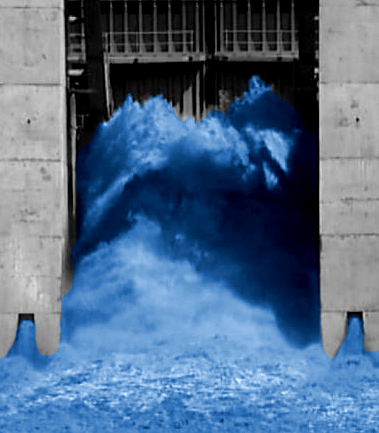Dam backers welcome new Federal view
 Lobby groups say the Federal Government’s focus on Northern Australia could reinvigorate their campaign for the Urannah Dam in North Queensland.
Lobby groups say the Federal Government’s focus on Northern Australia could reinvigorate their campaign for the Urannah Dam in North Queensland.
The proposed dam has been planned for a site 90 kilometres North West of Mackay, or 60 kilometres south of Collinsville.
It has been 40 years since the area was first identified as a potential water supply that would unlock vast tracts of new agricultural land.
Deputy Prime Minister, Warren Truss, was in Mackay promoting the Government's $200 million funding package for new dam projects last week, but he did not specifically back the Urannah Dam.
Still, lobbyists say it could have a strong argument for funding.
“[The business case] will need to express the scope of the project, its economic benefit [and] some assessment of what it will cost,” Truss said.
“These are feasibility studies, so not every ‘t’ has to be crossed and every ‘i’ dotted.
“What this project has by way of an advantage over some others, is that a lot of work has been done and therefore it is probably just a matter of updating that work and looking at what is the relevance of the assumptions made previously, and can they be relied on for a business case today.”
Proponents say the Urannah Dam would hold 1.5 million megalitres of water, and recent CSIRO reports have found the dam could provide water allocations of up to 150,000 megalitres per year.
Bowen Collinsville Enterprise water projects coordinator, David Evans, says the economics of the project are sound.
“Urannah would be a multi-mix usage operation, servicing the mining industry, both in the northern end of the Bowen basin, Moranbah, potentially the Galilee Basin if it goes ahead, water also for expanded baseload power generation and the 30,000 hectares [for agriculture] at Collinsville,” he told the ABC.
But Urannah Dam, like any major new dam, would not be commercially viable if it only supplies the agricultural sector.
This mean it would need to be more useful to gain commitment from other sectors, particularly mining.
While there are no clear estimates for how much the project would cost, but many consider it would be well over $200 million.
Proponents say that are seeking enough private investors to cover a large part of the cost, before they take a figure to the Government.








 Print
Print